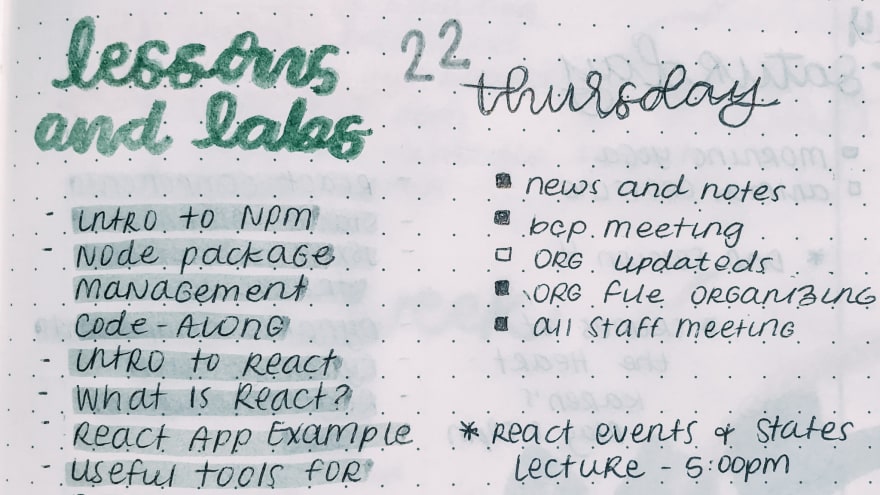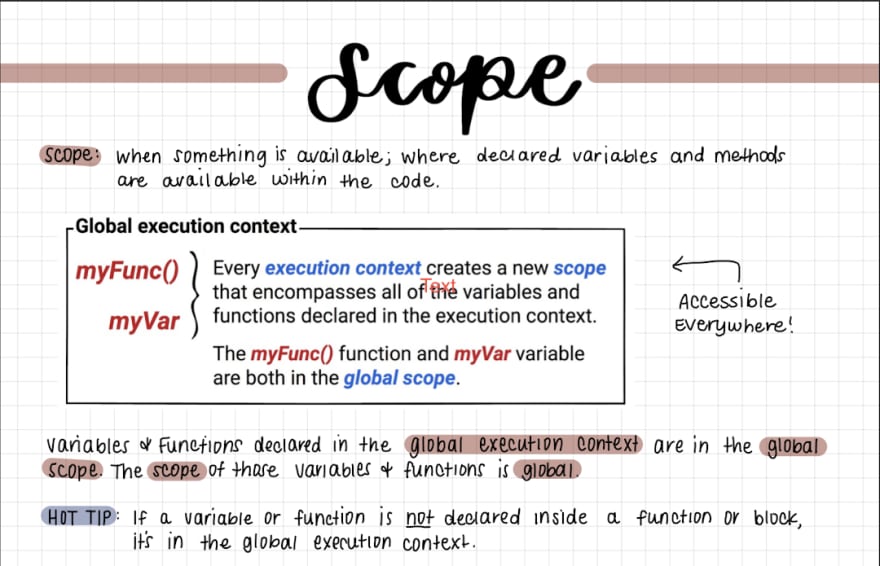The End of an Era
I am coming to the close of my ten-month long bootcamp at Flatiron School. The experience was a roller-coaster: there were days when I felt on top of the world, itching to get my fingers on the keyboard. And, there were days where I felt low and frustrated with debugging and debugging and debugging. But, if you know anything about me, you know that I absolutely love a good roller-coaster.
Like many other bootcamp students, I worked full-time during the day and coded part-time at home in the evenings and on the weekends. My success thus far has really come down to managing my time and finding that sweet balance between work, school, and relaxation. Here are my top five tips for doing just that.
Write it Down
Flatiron School did a wonderful job of helping its students keep on pace during the program. Each week, my cohort lead would post our schedule in our Slack channel - breaking down which lessons and labs to complete each day. Now, if you are like me, the schedule didn't always align with my work schedule. So, I made my own!
On Mondays, I wrote out which lessons and labs I aimed to complete each day taking into account my work schedule and personal plans. I put heavier coursework loads on my lighter work days. For example: If I knew I had a busy Wednesday, I would shift the bulk of my work to Friday when I had more time in the evening to dedicate to coding. This method may seem obvious, but writing it down in advance helped me tremendously in keeping up the pace.
Give Yourself A Day for Catch-Up
Learning code can be hard - especially when you are learning a lot of material very quickly. Sometimes, certain labs or concepts would take me longer to complete than I had originally planned for. A few months into the bootcamp, I started giving myself an extra day in my planned out schedule for catch-up. Having dedicated time to getting back on track allowed me to take more time on difficult concepts and overall helped to reduce my stress.
Get Ahead When You Can
On the flip-side of my last tip... get ahead when you can! When I would finish all of the lessons and labs I had planned for the day but still had time set aside for schoolwork, I moved onto the next section. I found that getting ahead during my scheduled time helped to balance out the longer lessons and gave me more free time at the end of the week for hobbies and relaxation.
Rearrange The Lessons if Needed
The Flatiron coursework is broken down in READMEs (lessons) and labs. Not surprisingly, the lessons usually took less time than the labs, even when I was taking detailed notes. On top of that, I could read through lessons and take notes almost anywhere, whereas I preferred to be at my desk to focus on the code alongs and labs.
All of that to say, there were weeks when I would complete the READMEs and take all of my notes before starting on the actual coding. I could login to my account on my lunch break at work and get through my lessons and note-taking during the week, then I could complete all of my coding practice at home over the weekend. I tried not to move onto the next section or topic before completing the labs, but I found that shifting the order within a section helped me to better balance my time.
Plan Your Projects First
I loved everything about my Flatiron bootcamp... so much that come project time, I wanted to just dive right into the coding. Usually, that would lead to me coding out entire components that I didn't end up using in my final project and wasting a lot of valuable time. If you keep on pace with the lessons and labs, you have two weeks to complete your end-of-module projects. If you are ambitious in your code, that doesn't give you a lot of time.
My advice: Plan out your project first! Write out your concept, draw up some wireframes, define your associations, etc. Of course, your project may evolve as you work on it. But having a good outline will really help you to stay on task and manage that precious project time.
I also found that finalizing my project concept a few weeks in advance really helped when it came time to code. Not only did it give me more planning time, but I was able to relate the lessons and labs directly to what I would be coding in my project.
Bonus Tip
Attend the lectures! This may sound like a no-brainer, but I think my cohort leader's lectures were the most valuable part of my bootcamp experience. Watching her code in real-time and being able to ask live questions really made the concepts sink in for me. I realize that schedules are busy and not everyone has time to attend "class". But if you can make time, I highly recommend tuning in those two nights a week!












Top comments (0)